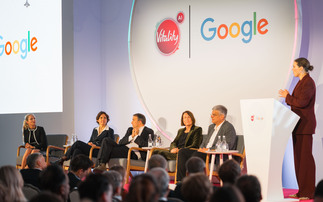Thinking of implementing a social media strategy? Paul Robertson asks John Barnes for a few pointers.
“In the old days, if a company had a problem and it mushroomed into a big media story, it could take weeks and months to rectify. Whereas in social media, if you can see that starting to happen, you stop the problem before it gets too big and possibly turn it into an advantage.”
However, most business people like to see statistics like return on investment (ROI); they use metrics. How do we measure standing in social media? How do you measure if we are any good at it, apart from the obvious things, like are we being followed, do you have a lot of followers?
Barnes said: “There are some other obvious things like if you are tweeting on Twitter, or posting messages on Facebook or stories on LinkedIn, are other people valuing them? In other words, are they re-posting them, re-tweeting them, liking them, sharing them?
“But if you are using social media tools there are many tools now, Klout being one of those, that will give you a kind of measure to see how influential you are in your space versus your peers, but also how influential you are in terms of the internet as a whole.”
In fact there is also the possibility for financial ROI, as with direct marketing. Incisive Media, for example, often releases discount codes to Twitter that are different to discount codes on Facebook and LinkedIn or in our magazines or direct marketing. Then the redemption of those discount codes is tracked to see how many people use them.
This is all very scientific but, given that the vast majority of brokerages and advisers are in small firms, with limited time, must this be done scientifically? Can you dabble in social media and still benefit from it?
Barnes thinks so: “Often it could be that just one of the more junior members of staff who is particularly interested in it can be given a brief, maybe an incentive, just to make sure that press releases or offers or stories go out – the sort of thing that small companies can actually take advantage from. That’s a good way to do it.
“I think it depends on the makeup of the team, but it really needs to be something that is coming from the individuals. It is not something you can just tell people to do. If they don’t want to do it, they won’t.”
The reason this all perhaps sounds a bit vague is of course because both the internet and social media quite obviously haven’t fully evolved. So, where is it heading? People are using more and more devices, which Barnes thinks is key.
“We no longer read the paper, put the paper down, get on the train, do our emails, get to work, do our work, read the evening paper on the way home, watch television. We are doing lots of those things simultaneously through devices.
“We might be reading the paper while doing our email, we might be on an iPad while watching television. We might be splitting between work-like activities, such as work on our computer, while both buying groceries and reading a newspaper online.
“The second big change is that audiences are increasingly becoming one-to-one. Even something like Sky – the circulation of subscribers at Sky isn’t seen as one massive number any more, it is seen as subsets. So who are the people who really like rugby, who are the people who really like rugby who are under 30 who might also like beach volleyball?
“That segmentation of the audience for small companies is quite an advantage because usually they have a better understanding of what buttons to press in the micro-marketing. And actually small audiences are easier to build on Twitter than mass-market audiences through circulations or through databases.
“It’s an interesting way to take that expertise and get some real advantages out of it in terms of converting it to business leads or intelligence about what the users are doing.”
Perhaps as a side note, it is interesting to speculate that social media and living in a non-linear fashion means that many employers are going to have to reassess their definition of work for employees. If work becomes task-driven or results-driven and as long as people are delivering tasks and results, do they have to work in a very Victorian way?
Barnes certainly thinks not: “Social media might lead to better completion of the task and improved results, i.e. they are more aware of what’s going on, they’re better informed, and they’re more connected.”
“My one tip would be if you haven’t tried it, to try social media in some way because it’s not pointless. And it might be not the thing for you but have a reason for not thinking it’s good or a reason for thinking it’s good, rather than relying on someone else’s opinion.”
Quite. If you have not already, give it a go.












